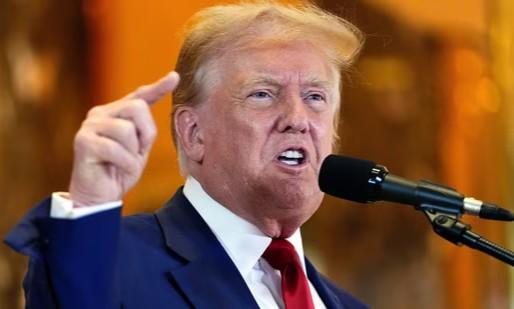
Trump backs plan for 500% tariffs on countries trading with Russia
In a significant escalation of economic pressure on countries trading with Russia, US President Donald Trump has backed a Senate plan that would allow tariffs of up to 500% on countries that continue to do business with Russia. The proposal, which comes amid growing frustration over Russia’s invasion of Ukraine, is specifically targeted at major buyers like India and China, who have continued to import Russian oil and other commodities despite Western sanctions.
The move is seen as a major shift in the US approach to dealing with countries that refuse to comply with sanctions on Russia. While the US has imposed sanctions on Russia itself, it has struggled to persuade other countries to follow suit, with many countries, including India and China, continuing to trade with Russia. The new plan would give the US the power to impose significant tariffs on countries that continue to trade with Russia, in an effort to squeeze the Russian economy and pressure President Vladimir Putin to end the war in Ukraine.
The proposal has already had an impact, with the US imposing a 50% tariff on India, one of the largest buyers of Russian oil. However, Trump has hinted that the duties could be eased if India reduces its imports of Russian oil. The move is seen as a carrot-and-stick approach, with the US offering to reduce tariffs in exchange for cooperation on sanctions.
The plan has been met with a mixed reaction from other countries, with some expressing concern about the impact on their economies. China, which is also a major buyer of Russian commodities, has warned that the move could have significant consequences for global trade. India, which has been trying to balance its relations with both the US and Russia, has also expressed concern about the impact of the tariffs on its economy.
The US has been frustrated with the lack of cooperation from other countries on sanctions, and the new plan is seen as a way to increase pressure on countries to comply. The US has imposed significant sanctions on Russia, including restrictions on its energy sector, but many countries have continued to trade with Russia, undermining the effectiveness of the sanctions.
The war in Ukraine has had a significant impact on global trade, with many countries imposing sanctions on Russia in an effort to pressure Putin to end the conflict. However, the sanctions have had limited impact, with Russia continuing to find ways to circumvent them. The new plan is seen as a way to increase the pressure on Russia, by targeting countries that continue to trade with it.
The use of tariffs as a tool of foreign policy is not new, but the scale of the proposed tariffs is unprecedented. A 500% tariff would make it extremely difficult for countries to continue trading with Russia, and would likely have a significant impact on the Russian economy. However, it could also have unintended consequences, such as higher prices for consumers and damage to global trade.
The plan is still in its early stages, and it is unclear whether it will be implemented. However, the fact that Trump has backed the plan suggests that it is a serious proposal, and that the US is prepared to take significant action to pressure countries to comply with sanctions on Russia.
In conclusion, the proposal to impose tariffs of up to 500% on countries trading with Russia is a significant escalation of economic pressure on countries that refuse to comply with sanctions. The move is targeted at major buyers like India and China, and is seen as a way to increase pressure on Russia to end the war in Ukraine. While the plan has been met with a mixed reaction, it is clear that the US is prepared to take significant action to enforce sanctions on Russia, and to pressure countries to comply.
As the situation continues to unfold, it will be important to watch how countries respond to the proposal, and whether the US is able to persuade other countries to comply with sanctions on Russia. One thing is clear, however: the US is prepared to take significant action to pressure Russia, and to protect its interests in the region.





